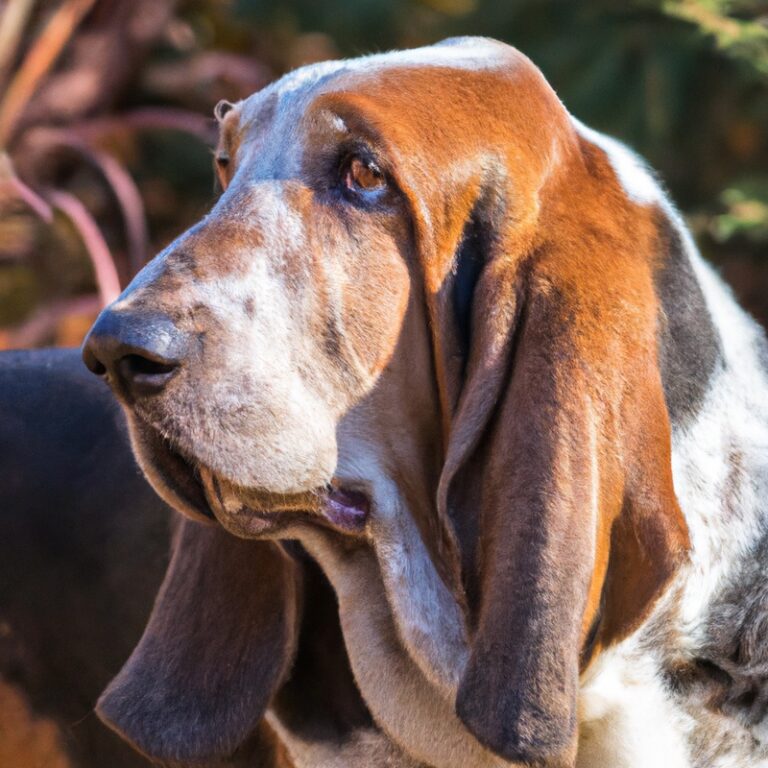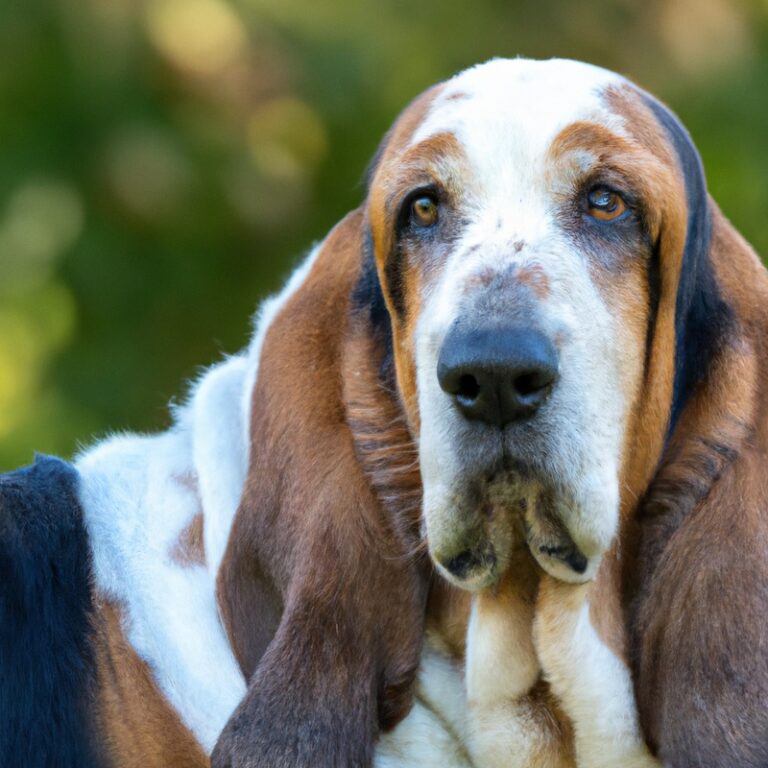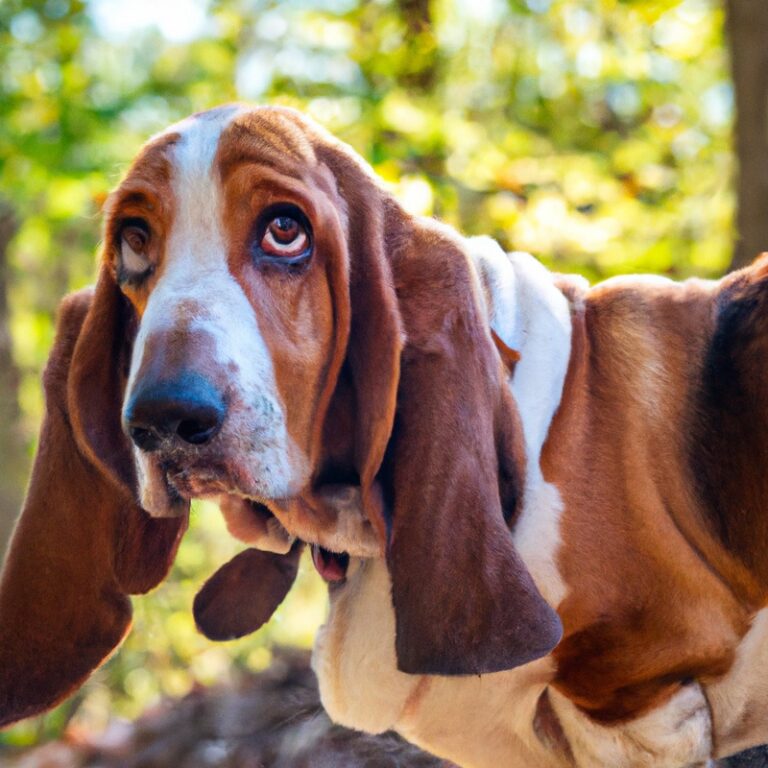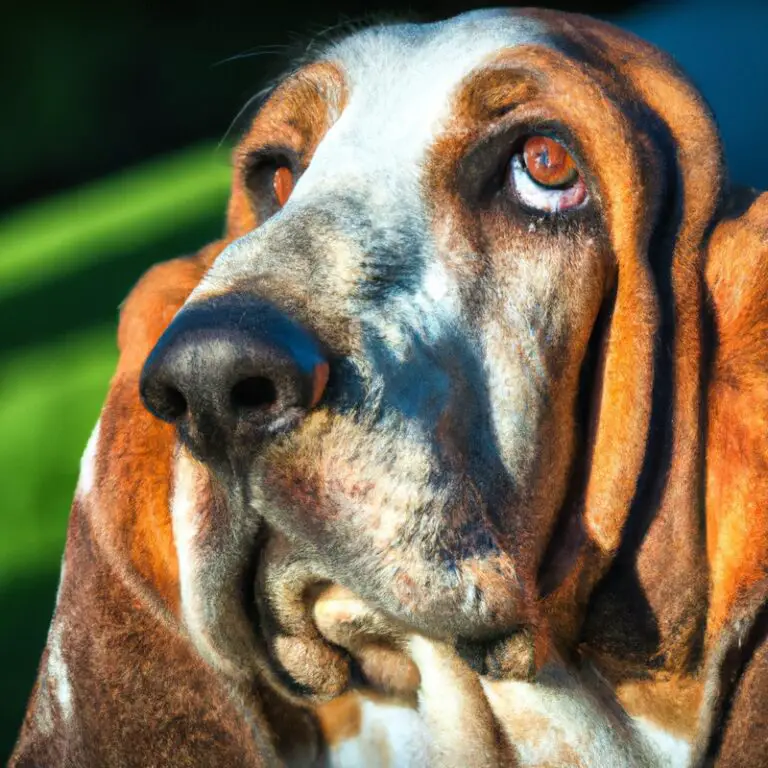How Do Basset Hounds Handle Being Left Alone During The Day?
Key Takeaways:
- Basset Hounds are prone to separation anxiety and may struggle when left alone for long periods.
- Proper training and gradual conditioning can help Basset Hounds cope with being alone during the day.
- Providing mental and physical stimulation through toys and exercise can alleviate boredom and reduce anxiety.
- Seeking professional help may be necessary if a Basset Hound’s separation anxiety becomes severe or unmanageable.
Have you ever wondered how your beloved Basset Hound copes with being left alone during the day? As a passionate dog owner and experienced canine enthusiast, I understand the importance of addressing the unique needs of specific dog breeds.
Basset Hounds, known for their adorable droopy ears and soulful eyes, have their own temperament and behavior patterns that can significantly impact their ability to handle solitude.
In this article, we will explore the characteristics of Basset Hounds, their susceptibility to separation anxiety, and effective strategies to ensure their well-being when left alone. So, let’s dive in and discover how to keep our furry friends happy and content even when we’re not around.
| Pros | Cons | |
| Basset Hounds |
|
|
Understanding the Basset Hound Breed
Characteristics and Temperament of Basset Hounds
Basset Hounds have some unique characteristics and a distinct temperament.
They are known for their long ears, droopy eyes, and low, heavy-set bodies.
Bassets are generally friendly, affectionate, and good with children and other pets.
They have a laid-back personality and are often described as calm and easygoing.
Bassets are also known for being stubborn and independent, which can sometimes make training a challenge.
They have a strong sense of smell and love to follow scents, so it’s important to keep them on a leash or in a secure area when outside.
Overall, Basset Hounds make wonderful companions with their lovable and relaxed nature.
Separation Anxiety in Basset Hounds
Basset Hounds are prone to separation anxiety, which is a condition where they feel distressed when left alone.
Signs of separation anxiety can include excessive barking, destructive behavior, and house soiling.
It’s important to recognize these signs and address the issue to help your Basset Hound feel more comfortable being alone.
This can be done through desensitization and counterconditioning techniques, where you gradually increase the time spent apart and provide positive experiences.
Seeking professional help may also be beneficial in severe cases.
Remember, every Basset Hound is unique, so patience and understanding are key in dealing with separation anxiety.
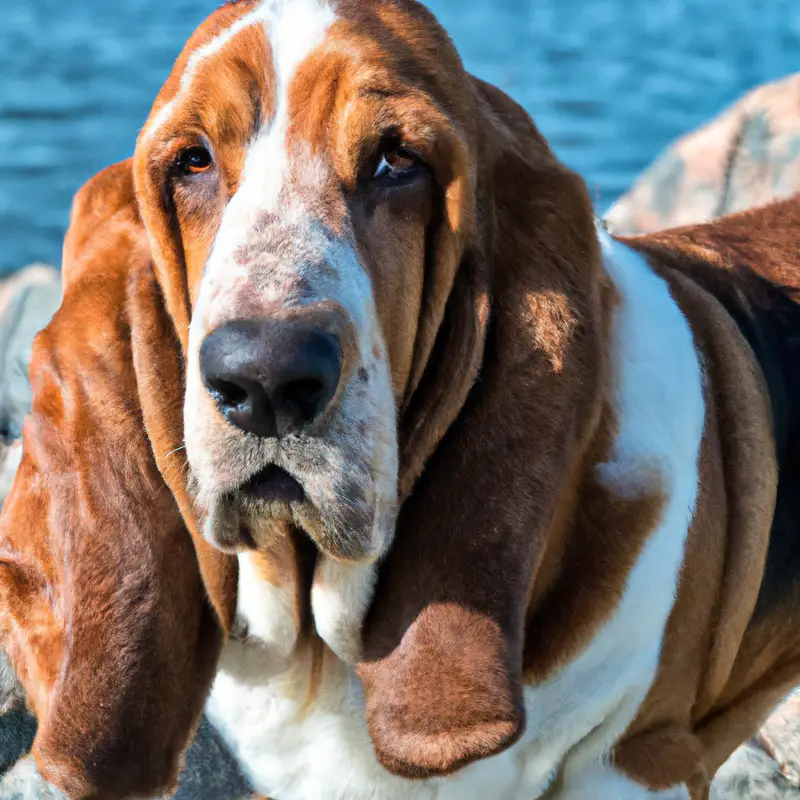
Factors Affecting Basset Hounds’ Ability to Stay Alone
Age and Training Level
Age and training level are key factors that can affect how well a Basset Hound handles being left alone. Younger Basset Hounds may struggle more with being alone for long periods as they are typically more energetic and require more attention.
On the other hand, older Basset Hounds may be more independent and comfortable being alone.
Additionally, the training level of a Basset Hound plays a significant role. A well-trained dog who understands commands and is used to being alone will likely handle being left alone better than a dog with little training.
Remember, every Basset Hound is unique, so it’s essential to consider these factors when assessing how well they can handle being left alone.
Exercise and Mental Stimulation
Exercise and mental stimulation are crucial for the well-being of Basset Hounds.
Regular exercise helps them burn off energy and maintain a healthy weight.
Long walks, playtime, and interactive games are great ways to keep them physically active.
It’s also important to stimulate their minds with puzzle toys, treat-dispensing toys, and training sessions.
Mental stimulation helps prevent boredom and destructive behaviors.
A combination of physical and mental exercise will keep your Basset Hound happy and content while you’re away.
Living Environment and Routine
Basset Hounds thrive in a calm and peaceful living environment.
It’s important to provide them with a comfortable and secure space where they can relax when left alone.
Creating a consistent routine is also crucial for their well-being.
This includes regular feeding and exercise times, as well as designated quiet time for napping.
By maintaining a stable living environment and sticking to a routine, Basset Hounds will feel more secure and content when left alone during the day.
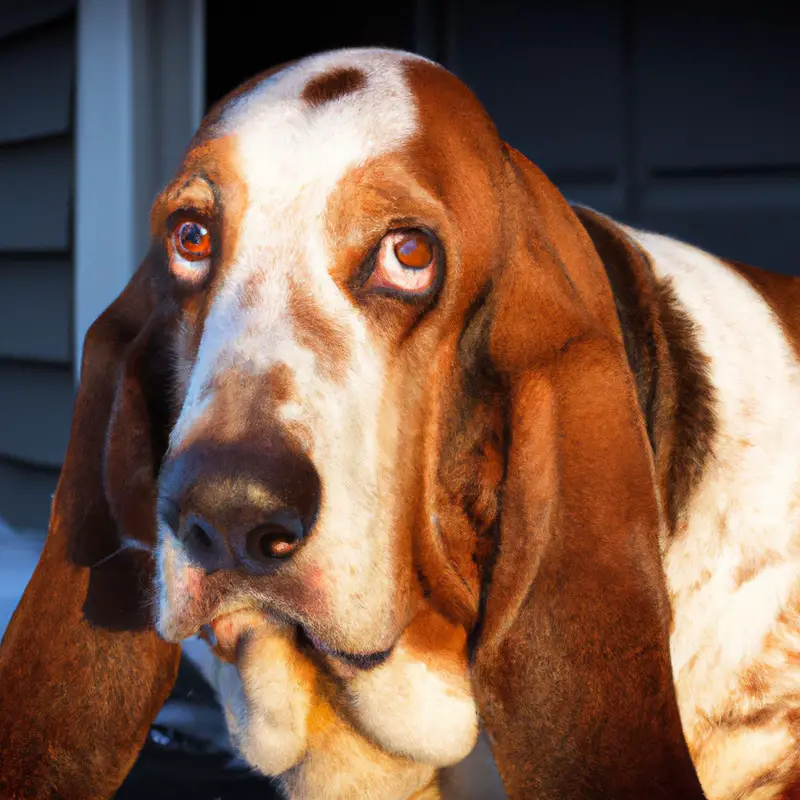
Tips for Leaving Basset Hounds Alone
Gradual Training for Independence
Training your Basset Hound to become independent and comfortable being alone takes time and patience.
Start by gradually increasing the amount of time you leave them alone, starting with short intervals and slowly extending them.
Provide them with interactive toys or puzzles to keep them mentally stimulated during your absence.
Create a safe and comfortable space for them, such as a designated area with their bed, toys, and water.
Reward them for calm and independent behavior, and avoid making a big fuss when leaving or returning.
With consistent training, your Basset Hound can learn to handle being alone.
Providing Interactive Toys and Puzzles
One way to keep your Basset Hound entertained and occupied while you’re away is by providing them with interactive toys and puzzles. These engaging toys can help stimulate their minds and keep them mentally engaged.
Look for toys that dispense treats or have hidden compartments where your Basset Hound can search for rewards.
Puzzle toys that require your dog to solve a problem or puzzle can also provide hours of entertainment. Just make sure to choose toys that are durable and safe for your furry friend.
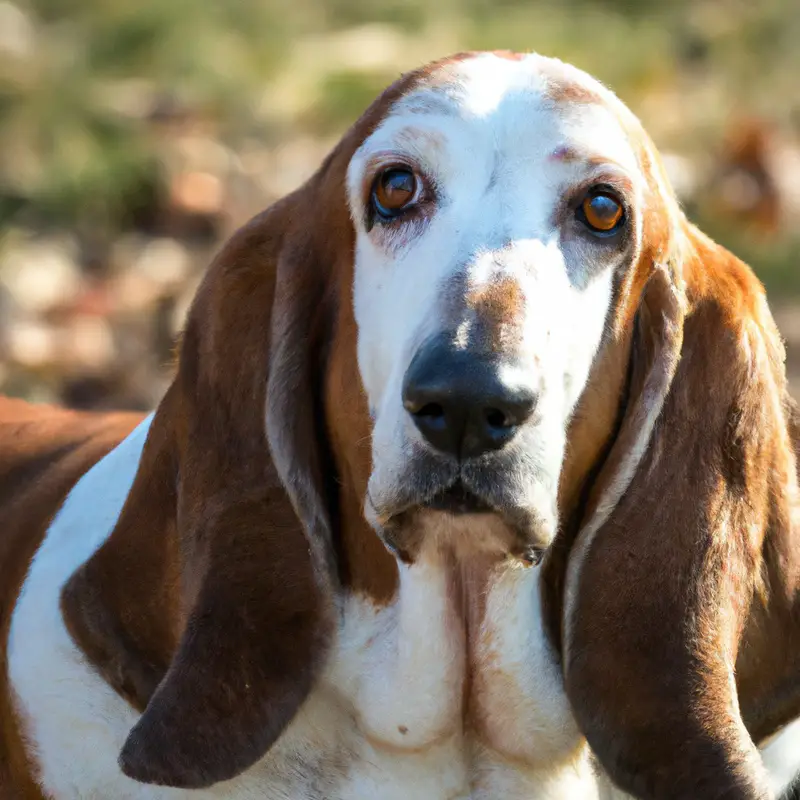
Creating a Safe and Comfortable Space
Creating a safe and comfortable space is vital for your Basset Hound when they are left alone. Start by designating a specific area in your home where your dog can relax and feel secure.
Make sure it is free from hazards and provide a comfortable bed or crate where they can rest.
Consider using baby gates or closing off certain rooms to prevent access to potentially dangerous areas. Provide fresh water and ensure the temperature is suitable for them.
Adding some of your dog’s favorite toys or puzzles can help keep them occupied and entertained while you’re away.
Dealing with Separation Anxiety in Basset Hounds
Recognizing the Signs of Separation Anxiety
Recognizing the signs of separation anxiety in Basset Hounds is essential for understanding their behavior. Some common signs include excessive barking or howling, destructive chewing, pacing, and attempting to escape.
Basset Hounds may also exhibit symptoms of anxiety such as drooling, panting, or urinating in the house.
It’s important to differentiate between separation anxiety and general boredom or restlessness. If you notice these signs consistently when you leave your Basset Hound alone, it’s likely they are experiencing separation anxiety.
Desensitization and Counterconditioning
Desensitization and counterconditioning are effective techniques for addressing and managing separation anxiety in Basset Hounds.
Desensitization involves gradually exposing your dog to being alone for short periods and then gradually increasing the duration over time.
This helps them become more accustomed to being alone and reduces their anxiety.
Counterconditioning involves pairing being alone with positive experiences, such as giving treats or engaging in a fun activity, to change your dog’s emotional response.
These techniques should be implemented with patience and consistency to help your Basset Hound overcome separation anxiety.
Seeking Professional Help
If you’ve tried various methods to alleviate your Basset Hound’s separation anxiety with no success, it might be time to seek professional help.
A veterinarian or animal behaviorist can provide valuable insights and develop a customized plan for your furry friend.
They can assess your Basset Hound’s specific needs, offer behavior modification techniques, and possibly prescribe medication if necessary.
Remember, every dog is unique, and what works for one may not work for another.
So don’t hesitate to reach out to a professional who can provide expert guidance tailored to your Basset Hound’s needs.
Alternative Solutions for a Basset Hound’s Loneliness
Hiring a Dog Sitter or Walker
Hiring a dog sitter or walker can be a great solution for keeping your Basset Hound company during the day.
A dog sitter can come to your home and spend quality time with your pup, providing companionship and playtime.
A dog walker can take your Basset Hound for a walk, giving them exercise and mental stimulation.
It’s important to hire someone trustworthy and experienced, who understands the needs of Basset Hounds.
This way, you can have peace of mind knowing your furry friend is in good hands.
Doggy Daycare or Playgroups
Doggy daycare or playgroups can be great options for keeping your Basset Hound entertained and socialized while you’re away. In doggy daycare, your Basset Hound will have the opportunity to interact and play with other dogs under the supervision of trained professionals.
Playgroups can also provide socialization and exercise, but in a more informal setting.
Both options can help alleviate your Basset Hound’s loneliness and prevent boredom. Just make sure to choose a reputable facility or group that prioritizes safety and matches your dog’s energy level and temperament.
Considering a Second Basset Hound
If you’re considering getting a second Basset Hound, it can be a wonderful solution to your dog’s loneliness.
Basset Hounds are known to be social animals and enjoy the company of other dogs.
Having a furry companion can provide them with companionship, playtime, and mental stimulation.
However, it’s important to consider factors such as your living space, financial capability, and the compatibility of the dogs.
Introducing a new dog should be done gradually and carefully to ensure a smooth transition.
Consulting with a professional or a reputable breeder can also be helpful in making this decision.
Final Verdict
Basset Hounds have a unique temperament and can sometimes struggle with being left alone for long periods of time. Factors such as age, training level, exercise, and living environment play a crucial role in their ability to handle solitude.
To help them cope, gradual training for independence, interactive toys, and creating a safe space can make a significant difference.
However, if separation anxiety becomes a serious issue, seeking professional help is highly recommended. Ultimately, understanding and addressing the specific needs of your Basset Hound will ensure their well-being and happiness when left alone.



